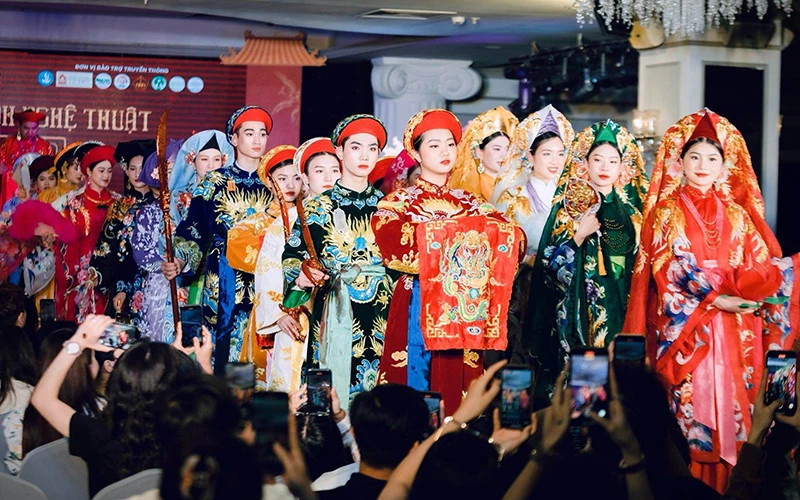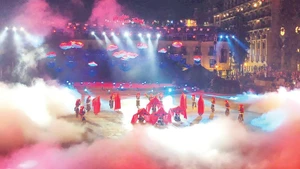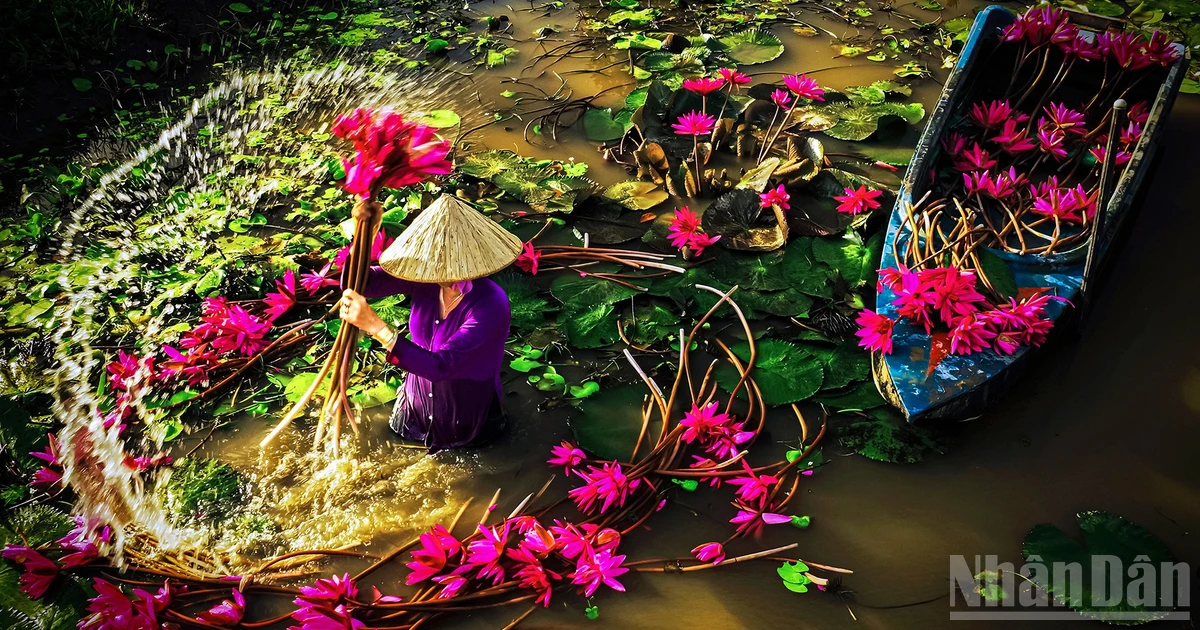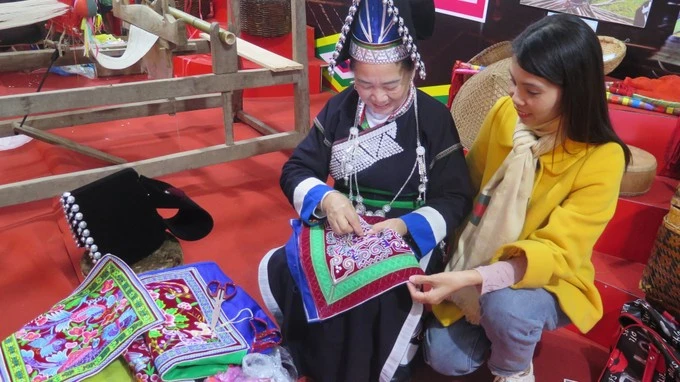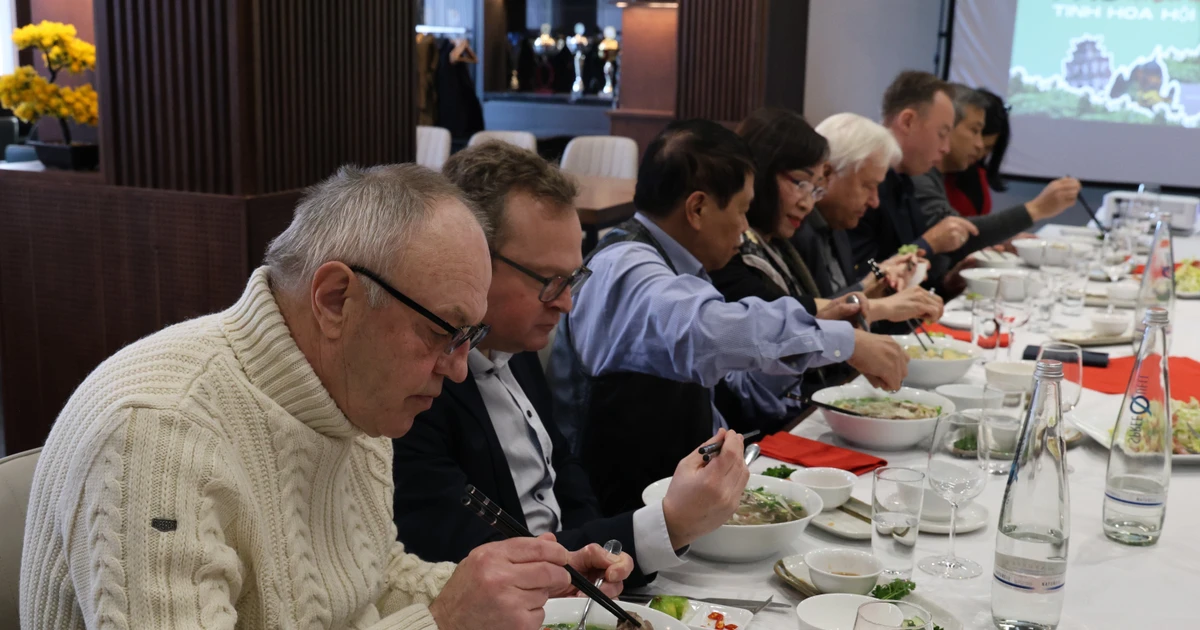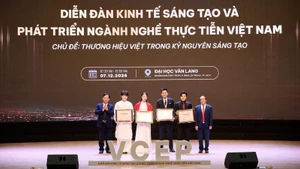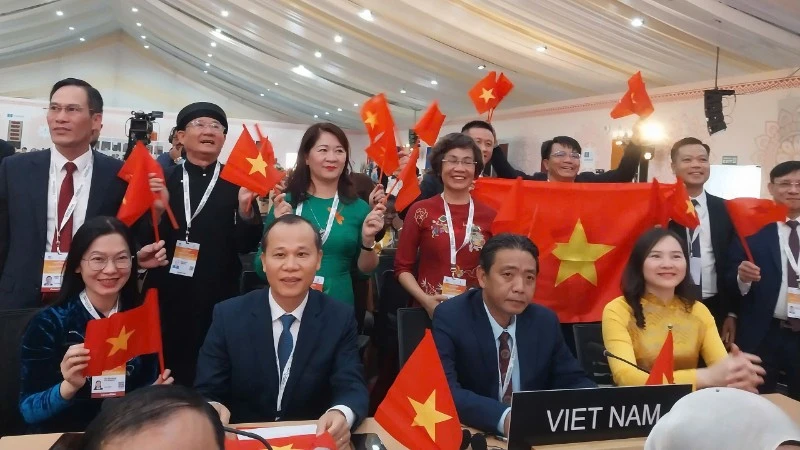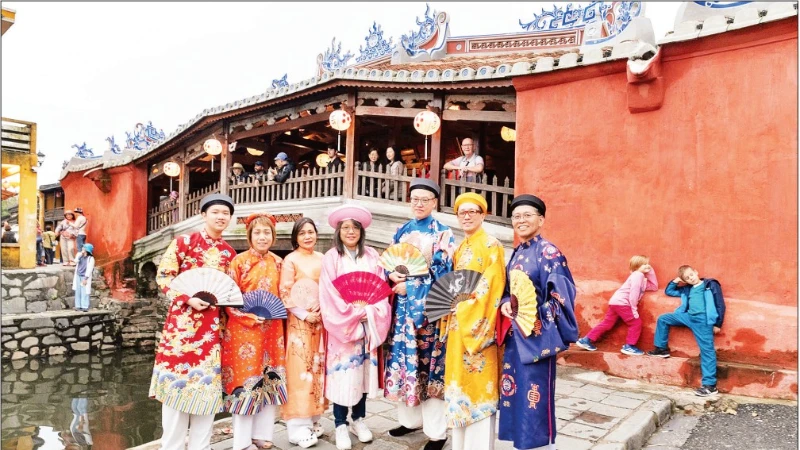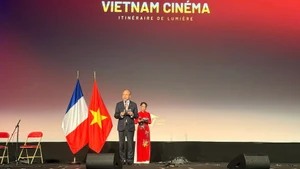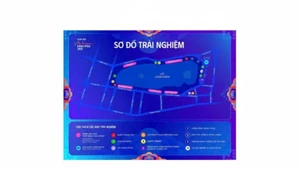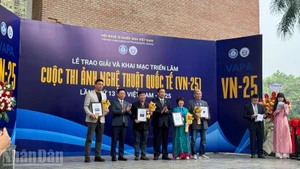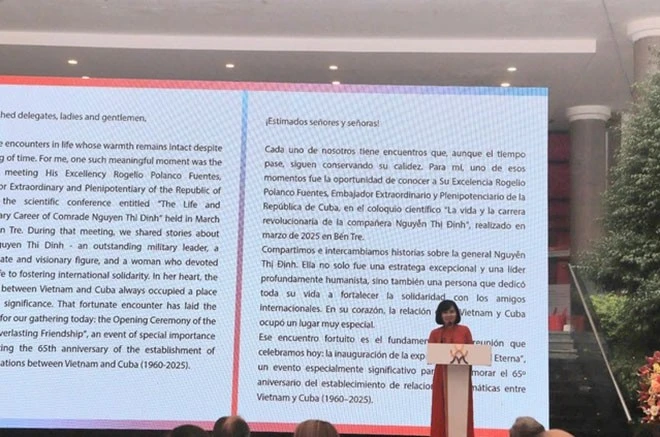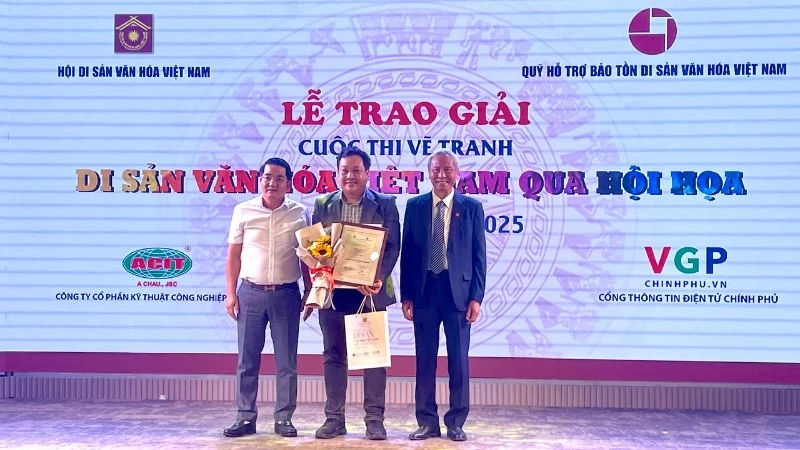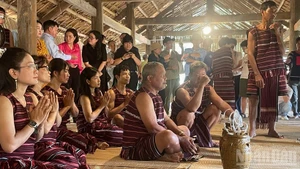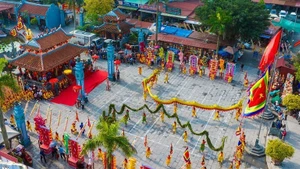On an April afternoon, the scorching heat of the summer sun seemed not as "hot" as the atmosphere at the Diplomatic Academy of Vietnam (in Hanoi), where the workshop entitled “Media Students x Tuong: The Road to the Heart” took place. After directly "touching" the Tuong (classical drama) with the excerpt entitled “Ngu bien” (Five Transformations) performed by artists from the Vietnam National Tuong Theatre, hundreds of young people in the hall learned about the characteristics of historical and northern Tuong plays through the exchange with experienced artists. Sounds of surprise and applause resounded continuously, especially when the artists used simple props to demonstrate the typical elements of Tuong.
The event was organised in a professional manner and the participants were surprised to learn that the "hosts" were Ngo Nguyen Thanh Thuy and Ha Thi Thanh Huyen, two students from the Faculty of Communications and Foreign Culture under the Diplomatic Academy of Vietnam. It was even more surprising to learn that the above workshop was just a part of a long-term project called “Tuong Date”. The students raised the idea for this project at the end of 2023. Thuy and Huyen said they met each other thanks to their love of traditional arts as well as the desire to spread the beauty of their ancestral heritage, especially the Tuong art, to their peers. Therefore, they started studying many related documents and projects on Tuong that were previously operated to help them find their own path.
Realising that young people were not motivated to enjoy Tuong because they do not really understand Tuong and their curiosity have not been aroused to explore Tuong, Thuy and Huyen have painstakingly launched "Tuong Date" project with a series of articles on the fan page named "Tuong tich luu nien" (Perennial Tuong plays). The articles provide a lot of interesting knowledge about the differences between Vietnamese Tuong and Chinese opera; the unique characteristics of Tuong in the Northern, Central, and Southern regions; popular Tuong tunes; and typical Tuong artists. Next, the two friends created a "dating" space with Tuong through the workshop “Media Students x Tuong: The Road to the Heart” that helped young people interact with Tuong so that they would gradually fall in love with Tuong and want to contribute to promoting the beauty and value of traditional Tuong arts. To realise this, "Tuong Date" has boldly implemented a special programme to recruit media interns for the National Tuong Theatre. This is an extremely meaningful connection, not only providing a space in which students of the Diplomatic Academy of Vietnam have opportunities to accumulate experience and knowledge in cultural communication in a professional art unit, but also helping the National Tuong Theatre improve communication effectiveness through the perspective and skills of well-trained young people.
Thanh Thuy said that as soon as the information about recruiting interns was announced “Tuong Date” received registrations from more than 70 students and selected nearly 20 students to intern at the Theatre in media-related fields such as writing news and articles, design, filming, and external relations. Through this project, “Tuong Date” committed to providing a long-term team of media interns for the National Tuong Theatre. This is also a way for “Tuong Date” to form a network of human resources capable of promoting the project’s development and creating larger-scale traditional art promotion activities.
Thanh Huyen also noted: “Despite many challenges during the implementation process, our ideas and activities have received enthusiastic support from the faculty as well as the National Tuong Theatre. This is a great source of motivation for young people like us to continue to stick with and spread our love for national arts and culture.”
Along with “Tuong Date”, a project decoding the costumes of during the practice of ‘hau dong’ (a particularly attractive ritual in the religion of Mother Goddesses Worship), which was recently carried out by a group of students from the Faculty of Writing and Journalism under the Hanoi University of Culture, also left a strong impression on participants. Not only were audiences sublimated with brilliant colours in the performance of costumes for 36 incarnations (gia chau), they were also engrossed in the melodies of ‘Chau Van’ (Spiritual Singing) and interacted with experts in the talk show to better understand the beauty of the Mother Goddess Worship religion, especially the diversity, richness, and meaning of the patterns and motifs on the costumes. The project also provided suggestions for creating Hau Dong costumes following the trend of both preserving traditional characteristics and integrating contemporary elements, thus contributing to bringing national traditional culture closer to young people.
As a speaker at the programme, and also as the first person to introduce ‘hau dong’ costumes to the international fashion stage, Dr. Artisan Nguyen Duc Hien shared that when accompanying young people to carry out projects promoting the beauty of traditional culture, he always felt the fresh energy and love of young people for national heritage. Young people always know how to find the "key" to spread the knowledge they have acquired in their own way. Therefore, the problem is to give them many opportunities to acquire knowledge about traditional culture and arts and awaken their desire to protect and preserve the precious heritages of their ancestors.
That is also the reason why artisan Hien’s Tien Huong Palace (in Phu Cat Commune, Quoc Oai District, Hanoi) has become a destination for domestic and international lecturers and students of VinUni University. With his fluent foreign language skills, the artisan introduced the beauty of the heritage, the personalities and achievements of the typical saints in the Mother Goddess Worship belief in English. He also directly performed some typical incarnations so that young people could better understand the value and beauty of the artistic elements in the ‘Hau Dong’ ritual. He said that many domestic and international students have come to Tien Huong Palace in recent years to conduct in-depth research on the Mother Goddess Worship religion. This is a positive signal affirming the spread of Vietnamese cultural heritages, as well as the young people’s interest of traditional arts and culture.
Recently, a series of projects carried out by young people and for young people has been activated to create linkages with traditional culture and arts. Along “Tuong Date” and the project decoding the costumes of during the practice of ‘hau dong’ ritual, there are also many others on traditional art forms such as ‘Ca tru’ (ceremonial singing), Cheo (Traditional Opera) singing and others. They have contributed to the formation of a community of young people who love national traditional culture. Promoting openness and creativity while maintaining traditional values is the common way that young people are applying a fresh coat of “paint” to the face of traditional culture and arts.
Notably, the events have been increasingly organised in a more systematic and creative manner. Not only are they a playground for young people, but the many projects have also mobilised the participation of experienced artists and artisans. The resonance from the experiences of the experts and the creative and fresh approaches from young people have helped traditional culture and arts find many ways to reach the community and promote their value.
As music researcher Nguyen Quang Long once said, whether expectations have been met or not, whether the approach has been in the right direction or not, the youth’s participation in preserving and creating new values based on traditional foundations is extremely valuable, contributing to affirming the longevity of national arts and culture as well as the responsibility and awareness of young people today. In the context of integration and globalisation and the development of digital technology, and the strong increase in the need for cultural exchange, the need for national cultural identification becomes ever more important.
Therefore, the trend of learning and recreating traditional arts and culture from the perspective of young people is the way to prolong the vitality of the past values, and also sustainably promote the values of our ancestral heritage in today's life.
